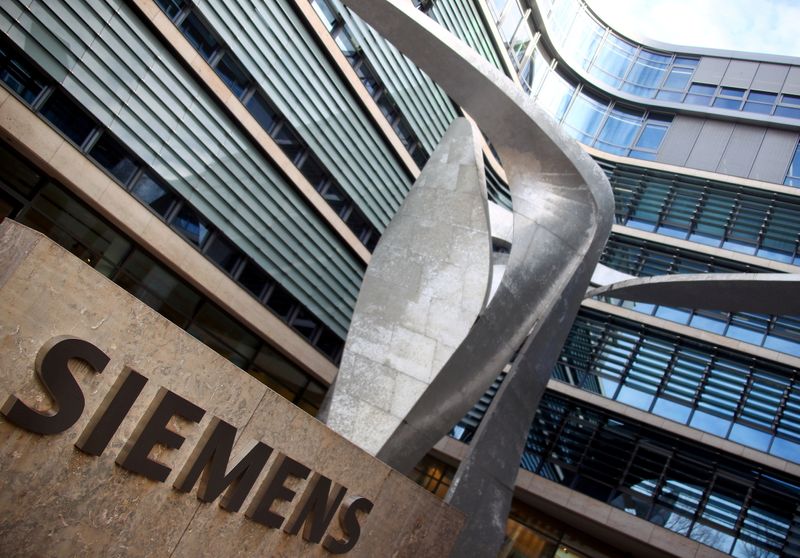FRANKFURT (Reuters) -Some of Germany’s best-known brands and industry bellwethers lifted their full-year sales and profit expectations on Thursday, citing a broad demand recovery from the effects of the pandemic.
Engineering group Siemens, sportswear company Adidas, Nivea-maker Beiersdorf, as well as pharma firms Bayer and Merck, all upgraded forecasts for the current year, citing increasing consumer spending and economic activity.
“The strong economic recovery across all regions continued. China was once again a key growth engine, with Europe and the U.S. catching up, supported by ongoing vaccination progress,” Siemens Chief Executive Roland Busch told analysts.
“We expect this favourable macro environment to continue with some growth moderation, especially in China. However, the rapid spread of new virus variants shows us that the pandemic is still not over.”
The trains-to-industrial software company raised its profit guidance for the third time this year.
Adidas Chief Executive Kasper Rorsted, meanwhile, pointed to better than expected demand as he delivered the company’s new sales and profit expectations, as did Beiersdorf after posting half-year sales above pre-crisis levels.
Agricultural and pharmaceuticals Bayer predicted that revenues would grow more strongly this year as sales of prescription medicines emerged from what it said was a pandemic-related slump.
This chimed with similar comments from Merck, which said that the business recovery that started in the second half of last year would continue in 2021.
“At present, the company does not expect that further disease waves will have a negative effect comparable to that seen in the first half of 2020, especially on the Healthcare and Electronics business sectors,” the Darmstadt-based company said.
Investor reaction was mixed, with shares in Siemens, Merck and Beiersdorf all trading 3%-6% higher, while Adidas and Bayer both fell 5% to the bottom of Germany’s benchmark index as investors pointed to weaker-than-expected growth.
“So far the market’s response is muted. There are different reasons for that. On the one hand China’s toughening stance with regard to the local IT sector is a source of concern,” said Marc Decker, head of fund management at Merck Finck.
“On the other hand, inflation and yield developments as well as the most recent negative newsflow around the Delta variant is viewed negatively.”
The outlook upgrades by German corporations come as industrial orders in Europe’s largest economy registered the biggest increase in 10 months, driven by bookings for large industrial items, mainly from domestic clients.
Figures published by the Federal Statistics Office on Thursday showed that orders for goods made in Germany jumped by 4.1% month-on-month in seasonally adjusted terms, beating a Reuters forecast for a 1.9% increase.
(Reporting by Christoph Steitz; Editing by David Goodman and Mike Harrison)























